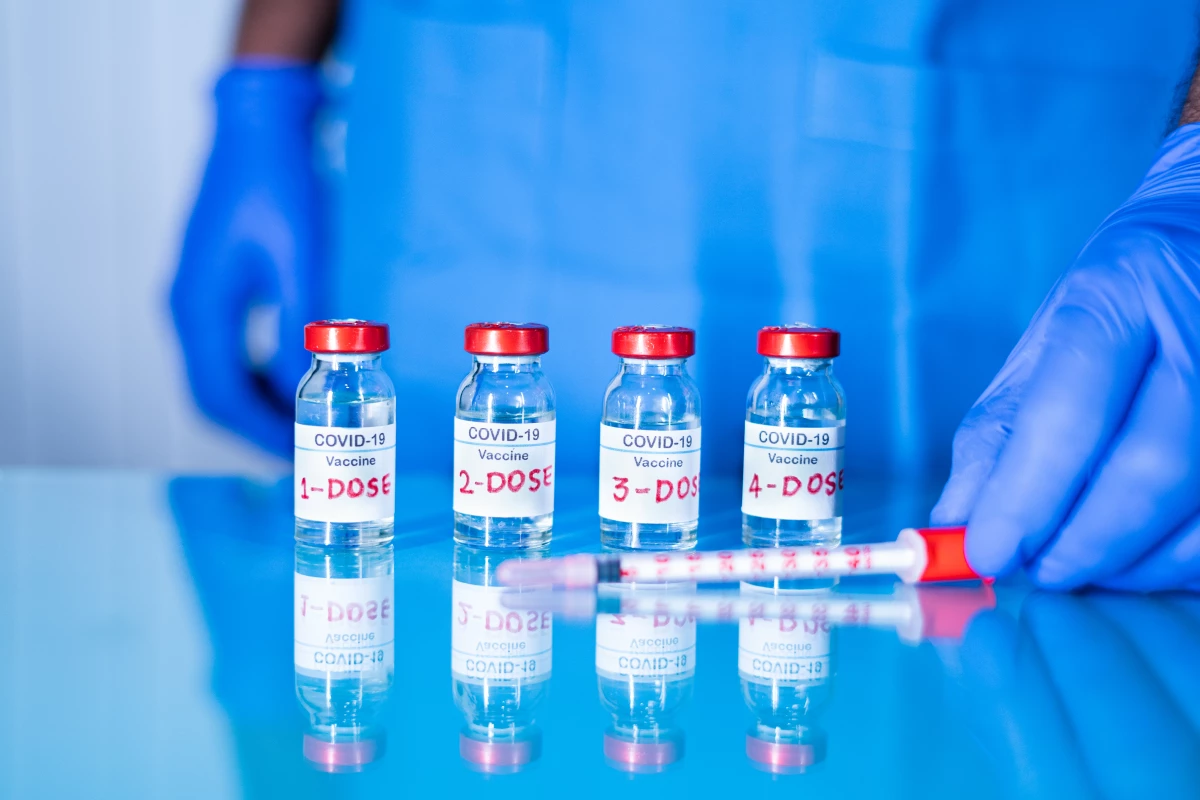Israel has begun the world’s first roll-out of a fourth COVID-19 vaccine dose. The program is initially focusing on patients with compromised immune systems, while a large study is underway testing the safety and efficacy of a fourth dose in several thousand people.
Back in August Israel became the first country in the world to commence a third COVID-19 vaccine dose program. Over recent months the data from that third dose program became invaluable to the rest of the world as many countries started to see vaccine efficacy wane around four to six months after a second dose.
Now, in the face of the dominant Omicron variant, the country again is at the forefront of vaccine delivery with a new question. Will a fourth COVID-19 vaccine dose help fight Omicron and is that extra dose safe?
Because many in the country are already four months past their third vaccine dose health authorities are concerned the ability of Omicron to evade vaccine immunity means a fourth dose may be necessary. Just before Christmas a panel of health experts advised the Israeli government to commence a fourth dose program in at-risk groups and those over the age of 60.
Set to commence on Boxing Day, the Israel Health Ministry initially paused the fourth dose program after emerging data from the UK indicated Omicron may be less severe than Delta, and three vaccine doses could still be protective. But Nachman Ash, the director of Israel’s Ministry of Health, has now announced the fourth dose program is set to commence beginning solely with immunocompromised individuals.
“Given the gaps of knowledge that exist around the world regarding the efficiency of a fourth dose in the current circumstances, we are acting cautiously and responsibly,” Ash said at a recent press conference.
The Health Ministry is also working with the Sheba Medical Center on a large trial to test the safety and efficacy of a fourth shot in 6,000 people. The first 150 subjects have already been given a fourth vaccine dose. This initial group comprised medical personnel who were all at least four months beyond their third dose.
“This study will test the effect of the fourth vaccine dose on the level of antibodies, on preventing contagion, and check its safety,” explains Gili Regev-Yochay from Sheba Medical Center. “This study is expected to shed light on the additional benefit of giving a fourth dose, and lead us to understand whether and to whom it is worth giving a fourth dose.”
A recent New York Times article covering Israel’s prospective fourth dose program cited a number of unnamed experts who expressed concerns that repeated COVID-19 vaccine dosing could cause a type of “immune fatigue.” These abstract concerns recall similar debates about booster shots generating “immune exhaustion” several months ago when third vaccine doses were being discussed.
Boosters are more like a one-time nudge for your immune system. That’s why you’ve never heard about exhaustion from your annual flu shot – it doesn’t happen
Tweeting on the topic back in November, virologist Angela Rasmussen explained how immune T cell exhaustion is a real phenomenon that had been fundamentally mischaracterized by people sowing doubt over vaccine safety. Rasmussen notes T cell exhaustion occurs when a patient experiences long-term chronic infection, so unless someone is chasing weekly COVID-19 vaccine boosters it is not a real concern.
“If T-cells are being chronically stimulated by a persistent infection or a tumor, they will basically shut down,” Rasmussen explained. “Boosters are more like a one-time nudge for your immune system. That’s why you’ve never heard about exhaustion from your annual flu shot – it doesn’t happen.”
Biochemist Edward Nirenberg echoed Rasmussen’s claims in November, explaining how T cell exhaustion is a real problem patients with cancer or chronic infection must sometimes face. However because mRNA vaccines only generate antigens in a human body for a few days it would take a lot more than two, three or even four vaccine doses in a single year to come close to this kind of outcome.
So apparently there's now this discussion that booster doses are going to exhaust the immune system and I am here to tell you that this is 100% not a thing. Here's a thread explaining. 🧵 pic.twitter.com/eEwaCZCuMI
— Edward Nirenberg (@ENirenberg) November 7, 2021
Mark Hoofnagle, from Washington University in St. Louis, was even more frank calling the idea of vaccine-induced immune exhaustion “exceptionally stupid.” Hoofnagle says if anyone is actually worried about immune exhaustion then they should definitely get vaccinated, because if anything has the capacity to cause T-cell exhaustion it is chronic infection with SARS-CoV-2.
The Israel fourth dose study hopes to offer preliminary antibody data in just two weeks. The Israel Health Ministry has yet to announce when, or if, it will more broadly roll out fourth vaccine doses to other populations such as the elderly.




